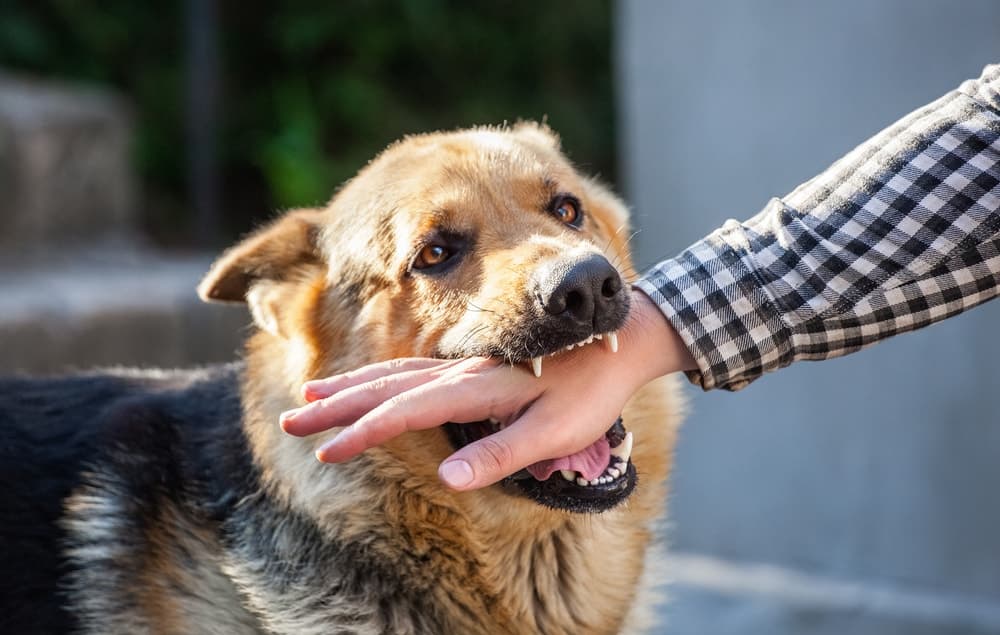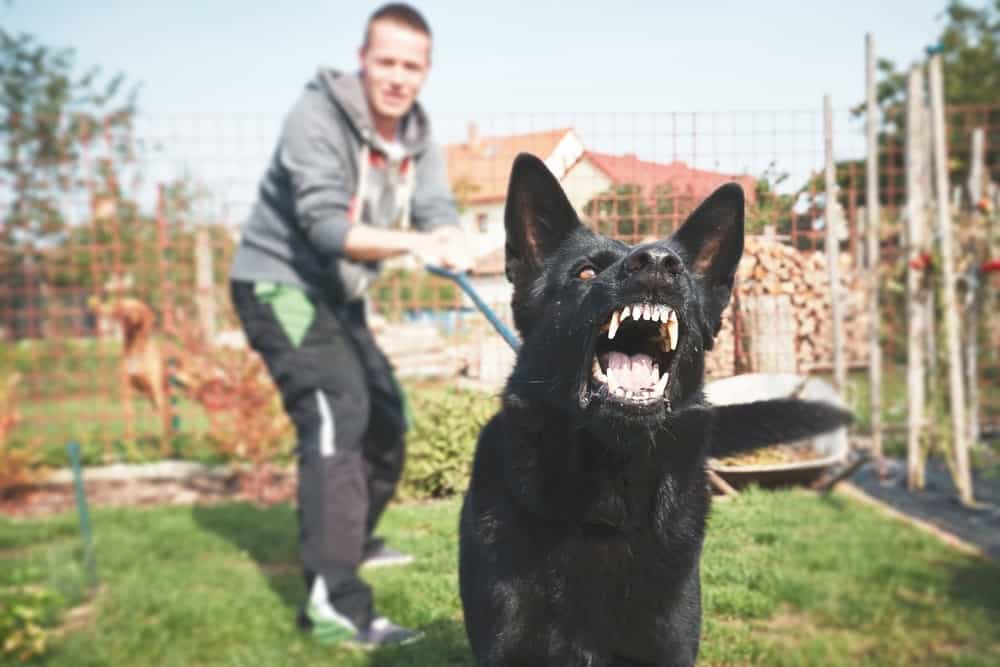If a Dog Bites Someone, Will They Have to be Euthanized?
In the vast majority of dog bite cases, the dog will not be put down for biting. However, whether or not your dog or a dog that bit you will be euthanized depends on several factors. This includes the circumstances of the bite, whether or not the animal has a history of biting and aggression, and the city, county, or state you live in.

There are two main ways dog bites are typically handled according to state laws. In some states it depends on whether the owner should have known their dog was a potential threat. In other states, the owner is presumed liable even if they couldn’t have known their dog may be aggressive.
Dog Bite Laws in the United States
If you’ve been bitten by a dog or someone has filed a lawsuit against you because your dog bit them, the first thing you need to find out (besides your state’s statute of limitations) is which of the two types of dog bite law states you live in.
States With “One Bite” Laws
In states with the one bite rule, a dog’s owner may not be liable if it was the first time the dog bit anyone. The second time, the owner wouldn’t be able to deny that they didn’t know it was a possibility. In other words, in these states, in the eyes of the law a dog’s owner gets one chance to be more careful with their dog after the first time it bites.
Like most everything else in life, there are exceptions to this rule. A dog’s owner will not get a free pass on the first bite if it can be proven that they should have known their dog could bite. For example, they know the dog is an aggressive breed, they know the dog has been traumatized, or they know their dog has displayed signs of dog aggression.
Proving fault in these cases can be complicated because the plaintiff’s lawyer must demonstrate that the dog’s owner either knew or should have known that their dog was likely to bite. Some evidence that can be used to prove this includes neighbors’ testimony, testimony regarding the dog’s training, and the dog’s breed.

States With Strict Liability Laws
In states with strict liability laws, a dog’s owner is almost always liable for their dog’s actions. Even if there was nothing the owner could have done to prevent the bite and they had no way of knowing the dog would bite, they are still responsible for the injured party’s damages provided the plaintiff:
- Did not provoke the dog
- Was legally allowed to be on the property when the dog bit them
In states with strict liability laws, dog owners may be legally liable if their dog has never bitten anyone before, it was not considered a dangerous breed, and it was never aggressive prior to the attack.
If you are suing a dog’s owner over a bite injury in a state with strict liability laws, the case will be more likely to settle out of court. This is because the strict liability laws make it clear early on whether or not the circumstances will determine that the dog’s owner was at fault according to the law.
The exceptions to this rule include cases where the bite victim provoked the dog and where the victim was not allowed to be on the property. Visit Bader Scott Injury Lawyers to learn more about the laws where you live.
What Happens When a Dog Is Deemed Dangerous
Again, depending on where you live, either the victim of the dog bite or animal control can have your dog declared dangerous. When this happens, you may need to put a “beware of dog” sign in your yard and to muzzle your dog when you take it out in public. In some areas, you may be required to move your dog to another jurisdiction.
When animal control takes possession of your dog until they decide its fate, this is known as a “bite hold.” If your dog is put on bite hold, it may be time to hire a lawyer. If you’re worried about your dog being put down because it has been deemed dangerous, this is the stage of the process when you need an attorney’s help. If you are a dog owner and you’ve noticed your dog is showing signs of aggression or, worse, your dog has already bitten someone, you need to do everything you can to improve their training. To avoid liability, you need to be able to demonstrate the steps you’ve taken to keep the public and your friends and family members safe.
About the Author: Cheryl Roy
While she has a solid education in law, Cheryl Roy wanted more than a job as a lawyer. She knew that people needed information and a better understanding of everyday legal matters. She began writing articles and guidelines to educate individuals and businesses. Now, she is collaborating with blogs, magazines, and outlets, being proud that her knowledge and her writing talent are helping everyone every day.




